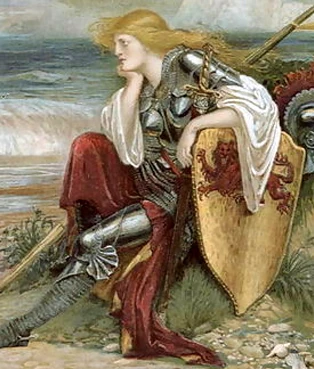My goodness, this is quite a collection of stories. They were not quite what I was expecting, particularly the moralistic elements about society and sexuality.
The first story has multiple themes that are carried throughout, particularly the duty of women to guard their virtue and the duplicity of churchmen. I think I read it somewhat differently than the author intended it, as I was mostly hoping she would not be raped rather than that she would not be convinced to betray her husband, who had not yet been mentioned. The moralizing sermon at the end is repeated with different but often related topics as well.
Personally, I find this 'enduring passion' rather creepy and stalkerish. He follows her everywhere with no sign that she actually loves him, although it turns out that she does.
 |
| Marguerite of Navarre. Source: Wikipedia. |
I am glad that justice is served even when the offender is a churchman. I particularly liked the implication that a misbehaving priest was at the service of the devil. (Note that I have nothing but respect for clergymen who practice what they preach). I especially disliked the priest who committed incest with his sister. I think the emphasis on clergy rather than government officials as those in power shows the prestige that the church had in society at that time as well as the author's role in the Reformation.
Another element of social commentary was a conversation that alternately demeaned and idealized the poor.
I thought the story of the Cordeliers and the pigs was hilarious. I am not sure how this could be retold in another context, as it is pretty specific to a society where innkeepers keep pigs and friars are called cordeliers. The mix-up where an animal destined to be slaughtered is called by the name of a person, or really any mix-up based on eavesdropping, is a pretty common theme in stories.
Bibliography: Walter K. Kelly's The Heptameron of Marguerite, Queen of Navarre. Link.

